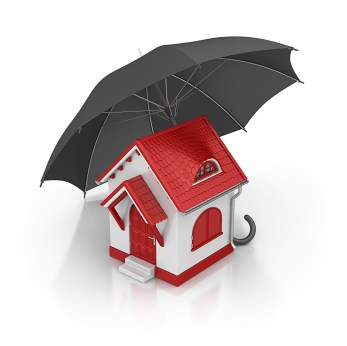7 ways to fight rising home insurance premiums
 If your homeowner’s insurance policy is up for renewal, you may need to adjust your budget. According to the latest data from the National Association of Insurance Commissioners (NAIC), home insurance premiums rose by 7.6 percent in 2011 – a trend that seems likely to continue.
If your homeowner’s insurance policy is up for renewal, you may need to adjust your budget. According to the latest data from the National Association of Insurance Commissioners (NAIC), home insurance premiums rose by 7.6 percent in 2011 – a trend that seems likely to continue.
But if your insurance company raises your rates, you don’t just have to take it, experts say. Here are seven ways that you can buck the trend of paying more for homeowner’s insurance and keep more dollars in your pocket.
7 ways to save money on your home insurance premium
1. Push back. Don’t be so quick to write a bigger check. If you’re not sure why the rate went up in the first place, contact your insurer for an explanation, says Ann Roberson, a spokeswoman for the South Carolina Department of Insurance. If you don’t think the increase was justified, contact your state insurance regulator to complain. While that may not lead to an immediate rate reduction, a flood of consumer complaints could prompt your state regulator to look more closely at your insurer’s practices.
2. Ask for a lower rate. You’ll never know what your insurer is willing to do for you unless you ask. Often, there are discounts that you’re entitled to that may bring the costs down, says Travis Ford, a spokesman for the Missouri Department of Insurance.Since insurers aren’t obligated to call you and tell you about discounts, “don’t assume that you are receiving all the discounts that you’re entitled to,” Ford says. For example, some insurers offer lower rates for seniors who’ve retired because they spend more time at home, which reduces the risk of a damaging fire or theft, Ford says.
3. Threaten to leave. Have you ever asked a credit card provider to lower your rate by telling them about a better offer? You can do the same thing with your insurance provider. When shopping for homeowner’s insurance, “you will probably find a pretty dramatic variation in what different companies are charging,” says Amy Bach, executive director of United Policyholders, a nonprofit consumer advocacy group. If you’re happy with your insurer and you want to stay with it, call the company and say you’d prefer to stay put but another company is offering a much better rate. The insurer may be able to bring the rate back down to keep you. Of course, your likelihood of getting a better rate decreases if you live in an area where few insurers are competing for your business, such as a region that’s prone to wildfires.
4. Explore greener pastures. Maybe you don’t have a sense of loyalty to your insurance provider and you’re willing to simply find a company that can give you a better deal. If so, make sure you’re comparing apples to apples, Bach says. In other words, if a company offers a lower quote, make sure it hasn’t trimmed the essential protections for your home to provide the better rate.
5. Enlist the help of a broker. An insurance broker has no allegiance to a particular insurance company, so he or she is familiar with a variety of insurance companies, as well as privy to a wide range of rates. “A good broker will help you trim your premium because they want to keep you as a customer,” Bach says. Find one near you through the Independent Insurance Agents & Brokers of America.
6. Change your policy’s terms. If you don’t want to leave your current insurer or you can’t find a lower rate any other way, you can make changes to your policy to decrease costs. For example, an increase from a $500 deductible to a $1,000 deductible could lead to 25 percent in annual savings, according to the South Carolina Department of Insurance. Likewise, buying your auto insurance and home insurance from the same provider (bundling your policies) likely will lead to a lower rate.
7. Decrease your insurer’s risk. You may be able to do things around your house to decrease your insurer’s risk and lower your rate. For example, a new roof made of asphalt, metal or slate may be less prone to wind, flying debris and fire, according to the Insurance Institute for Business & Home Safety. Some states may provide financial help for major improvements. The South Carolina Hurricane Damage Mitigation Program provides grants of up to $5,000 for South Carolina residents to strengthen their homes so they’re better protected against hurricane and storm damage.